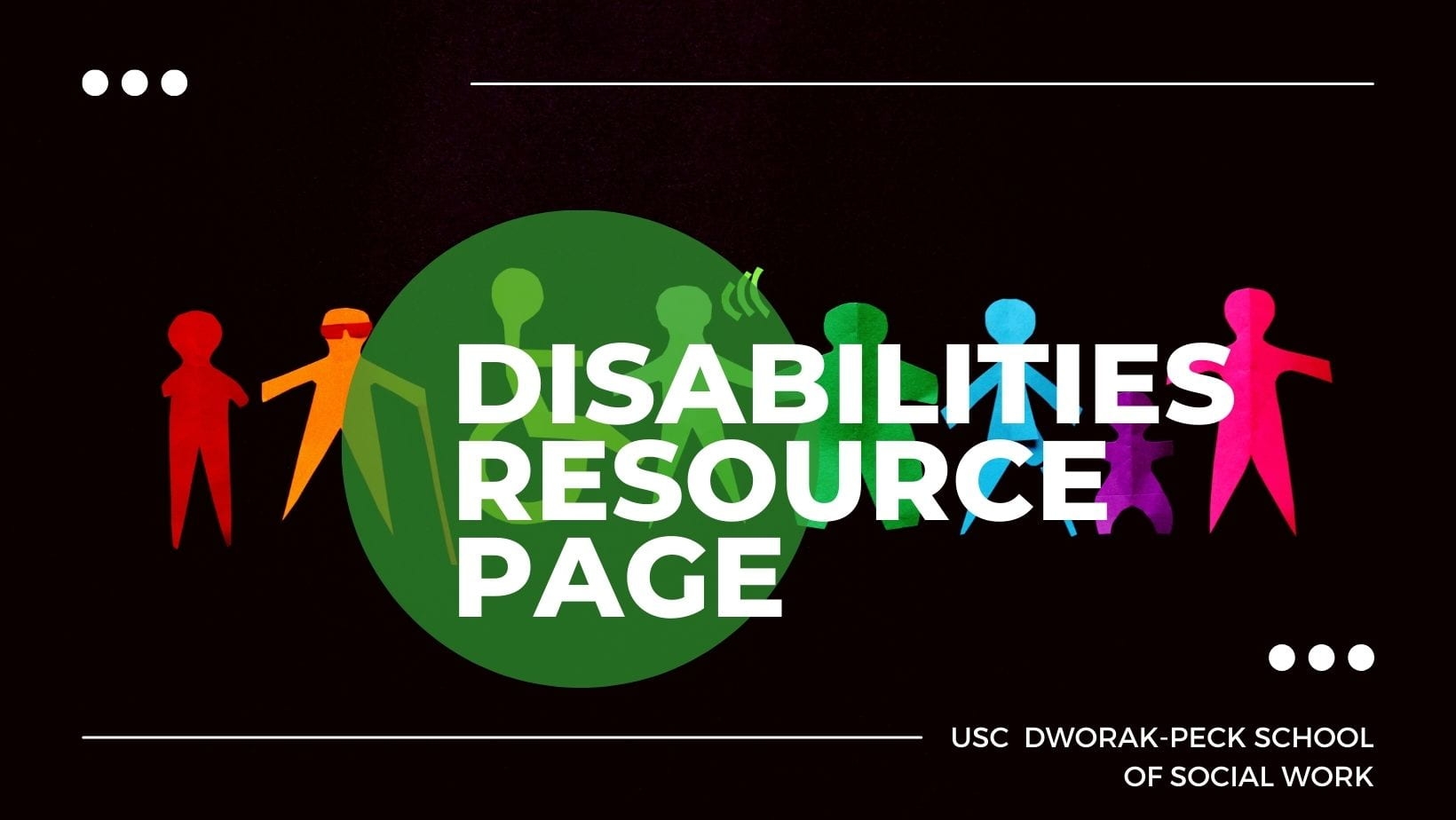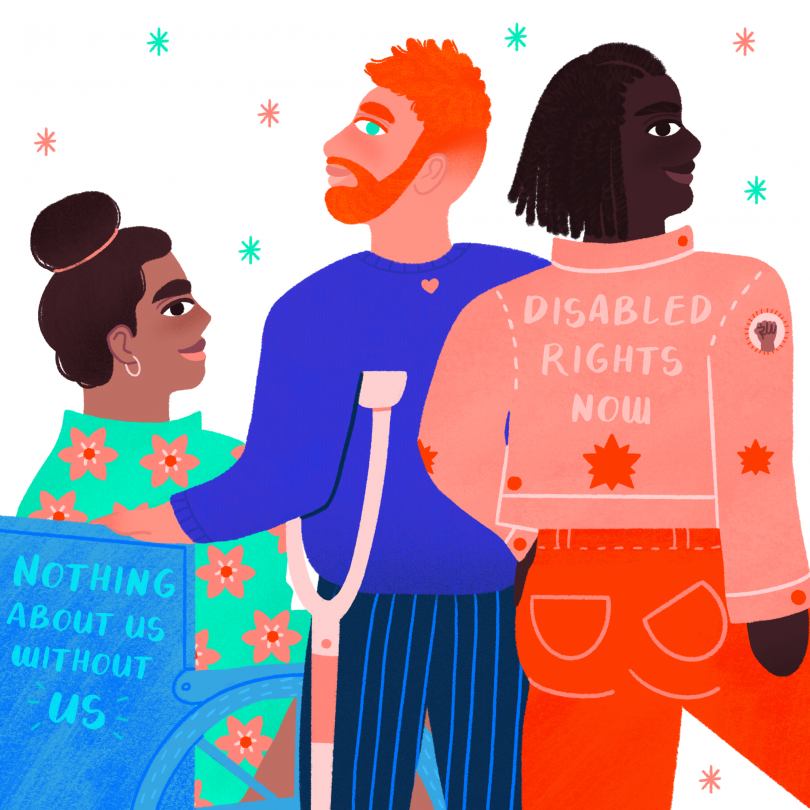Disabilities Resources
USC Office of Student Accessibility
Engage
ADA 30 In Color
#ADA30InColor: a series of original essays on the past, present, and future of disability rights and justice by disabled BIPOC (Black, Indigenous, People of Color) writers. Published and edited by … Continue reading
The Disability Visibility Project
The Disability Visibility Project® is an online community dedicated to recording, amplifying, and sharing disability media and culture. The website houses “disabled media” from oral histories in the form of social media, podcast episodes, radio stories, audio clips, images, blogs, etc. The website includes original essays, reports, and blogs about ableism, intersectionality, culture, media, and politics from the perspective of disabled people. The resources on this site can be used by students to facilitate discussion or group activities.
Motion Picture: Lives worth living
“Lives Worth Living” is both an historical documentary about the Disability Rights Movement and a biography about one man’s struggle to survive. This film is an oral history, told by the movement’s heroes themselves, and illustrated using rare archival footage. The story features Fred Fay, who suffered a spinal cord injury at age 17 in 1961, and simply refused to be relegated to life’s sidelines just because he couldn’t walk. It can be used in class to stimulate discussion on civil rights.
Understanding the Bias Around Sexuality and Disability
Local CMS Medicare and Medicaid Data
Professional Resources
Public Benefits for People with Disabilities
Resources for the Disability Competent Care Self-Assessment Tool
Resources for Integrated Care developed the Disability-Competent Care Self-Assessment Tool (DCCAT) to help health plans and health systems evaluate their present ability to meet the needs of adults with functional limitations and to identify strategic opportunities for improvement. This tool can be used for class assignments and exercises.
Using the Disability Competent Care Self-Assessment Tool
Resources for Integrated Care developed the DCC-START to assist health plans, health systems, and health care provider organizations strengthen their efforts to provide integrated, coordinated care to their members with disabilities. The DCC-START assesses organization’s Disability-Competent Care (DCC) training materials and identifies opportunities for augmentation and enhancement. The DCC-START complements the Disability-Competent Care Self-Assessment Tool (DCCAT), which is used by health plans and organizations to evaluate their DCC capabilities. This tool can be used for class assignments and exercises.
Federal Protections Against Discrimination for Disabilities
Resources for Integrated Care: Tips for Interacting with People with Disabilities
This paper by June Isaacson Kaile begins with a quiz about interacting with people with disabilities. Educators can use this resource as a quiz in their class or adapt the format to fit other resources.



